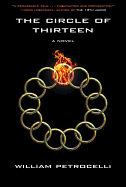Last week during the Northern California Independent Booksellers Association conference and trade show, two sessions provided pointers to support frontline booksellers.
"Why is the children's section of the store so important?" asked Antonia Squire from the Reading Bug, San Carlos, Calif., who moderated the panel called "Is There a Monster Behind the Bookshelf? How to Navigate the Kids Section When You Think You Know Nothing About Kids Books." Panelist Maggie Tokuda-Hall, children's director at Books Inc., provided the answer: at the nine Books Inc. stores, she said, children's book sales range from 10% to 37% of all sales. "We hope [children's book buyers] come to us for adult books, too," said Tokuda-Hall, adding that managing children's books also helps stores build relationships with local schools, "not to mention, hopefully creating the next generation of readers."
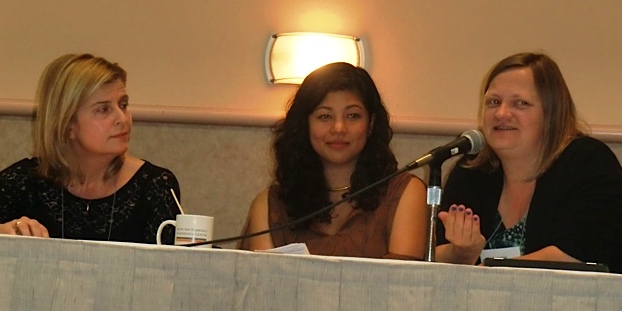 |
|
Kids panel: Susan Peyrat, Mrs. Dalloway's; Maggie Tokuda-Hall, Books Inc.; and Antonia Squire, the Reading Bug.
|
Panelist Susan Peyrat from Mrs. Dalloway's in Berkeley, a self-described "grown-up book reader looking across the divide," said that Mrs. Dalloway's has an excellent children's expert and buyer, and about 25% of the store's sales are in children and YA titles.
So why, asked Squire, are kids' books sections so daunting for general booksellers? Perhaps, she speculated, it's because most of us who love books fell in love with reading as children and feel a strong sense of obligation to recommend the exact right book to the right child--or adult buying for a child or teen (or themselves).
Books Inc. tries to have a children's expert on hand at each store, Tokuda-Hall said, but she also suggested that for stores without such resources, shelf talkers with age-appropriate information are a big help. And she recommended that children's buyers talk with their colleagues about the children's books they're reading, as they would with adult books. "Talking about the great books we are reading is one of the best parts of working in a bookstore, anyway," Tokuda-Hall said.
When non-kid-expert booksellers like Peyrat hear about books from children's buyers, it gives them a frame of reference from which to help customers. Between shelf talkers and co-workers sharing their kids' book reading with colleagues, general booksellers can feel more confident in the kids' section.
Summer Laurie, a children's literature specialist at Books Inc., who is also the Children's Bookselling Alliance representative on the NCIBA board, offered resources for booksellers who want title- and age-specific information, including the free children's book listservs at NCIBA and the American Booksellers Association. Other resources mentioned were Books Inc.'s children's book blog, Hicklebee's website, School Library Journal and Ingram.
The Joys of Bookselling
At a session called "WAIT, We Can Do This for a Living?: Or How to Get Ahead in Bookselling," Pete Mulvihill, one of the owners of Green Apple Books in San Francisco, moderated a panel that included Alison Reid, an owner of DIESEL (now with four locations); Nick Petrulakis, manager of Books Inc. in Alameda; and Ray Lawrason, assistant manager of Copperfield's in Petaluma, Calif.
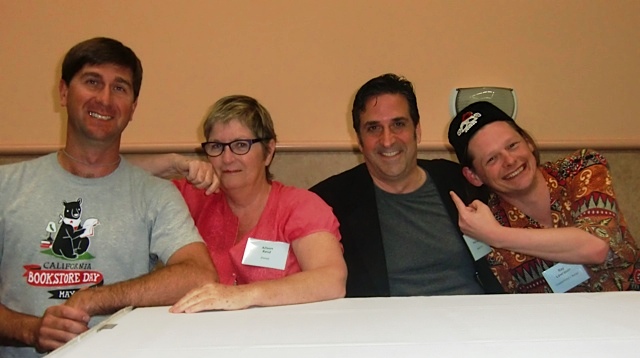 |
|
Booksellers Pete Mulvihill, Green Apple; Alison Reid, DIESEL; Nick Petrulakis, Books Inc.; and Ray Lawrason, Copperfield's.
|
Mulvihill started in bookselling as a temp at Green Apple. Reid, who said she was the first newspaper girl in Scotland, got her initial experience in college at Berkeley, where her roommate got her a job at a Waldenbooks. She went on to manage the Pegasus used and new bookstore on College Avenue. Petrulakis said he came into bookselling at Books Inc. after he had written "a really bad novel" and his wife suggested he might want to get ahead. Lawrason said he got his bookselling start at Book Ends in Napa, when he "just felt home" when, during the job interview, the owner asked what he was reading.
No one goes into bookselling for the money, the panelists all agreed, but they suggested that booksellers bring a sense of professionalism and ownership to the job. Mulvihill noted that everyone at Green Apple learns all things--from receiving to returning books. "You are not defined by your job title," he said, "but by your performance in that job."
"We all want to work with people who want to work," said Petrulakis. At Books Inc., Petrulakis said he learned to appreciate the willingness to work when owner Michael Tucker showed up with 10 minutes' notice to help him clean the basement when sewage leaked into it. "Michael was not above that," he said.
"If you are looking to really move forward," said Lawrason, "then you can't be just a cog." Because no one can be all things, he suggested, booksellers should become the "go-to" person for things they excel in, like point-of-purchase procedures, handselling or returns. "What you want to do is become part of the life's blood of the store," he said.
Mulvihill advised booksellers to make suggestions to their managers and storeowners to help improve systems, but to also respect that the manager or owner might want their efforts concentrated in ways that fit their overall managerial goals. And, he suggested, booksellers should be sure to toot their own horns every once in a while, because managers and owners sometimes get too busy to notice what a great job you are doing for them.
The pay might not be great, but the panelists agreed that being a bookseller is worth more than the paycheck. "We live a fairly rich life," said Reid, with a nod to the perks of the job, which include working with interesting and interested people and the chance to meet some of your favorite authors. --Bridget Kinsella
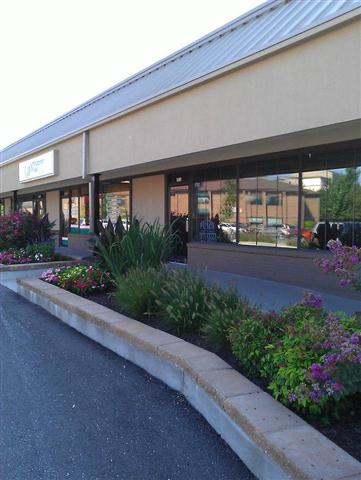 Doug Wilson, co-owner with Becky Asher of Village Books, Columbia, Mo., "firmly believes that personal service is one reason it has done well, despite the unsteady history of small book dealers in a ragged economy," the Missourian wrote. Now celebrating its ninth anniversary, Village Books is in the process of moving from Paris Road to "a more robust location," and on November 1 will reopen at 2513 Bernadette Square near the Columbia Mall.
Doug Wilson, co-owner with Becky Asher of Village Books, Columbia, Mo., "firmly believes that personal service is one reason it has done well, despite the unsteady history of small book dealers in a ragged economy," the Missourian wrote. Now celebrating its ninth anniversary, Village Books is in the process of moving from Paris Road to "a more robust location," and on November 1 will reopen at 2513 Bernadette Square near the Columbia Mall. 





IPC.0204.S3.INDIEPRESSMONTHCONTEST.gif)








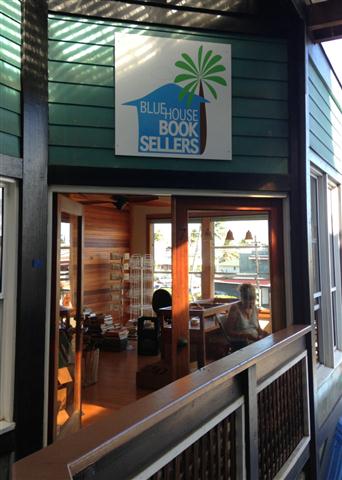 After two years as part of Small Town Coffee Co., in Kapaa on the island of Kauai, Hawaii,
After two years as part of Small Town Coffee Co., in Kapaa on the island of Kauai, Hawaii, IPC.0211.T4.INDIEPRESSMONTH.gif)
 Some 40% of adults, including 46% of those between 18 and 39, own an e-reader or tablet, double the percentages of two years ago, and 60% of college graduates own an e-reader,
Some 40% of adults, including 46% of those between 18 and 39, own an e-reader or tablet, double the percentages of two years ago, and 60% of college graduates own an e-reader, 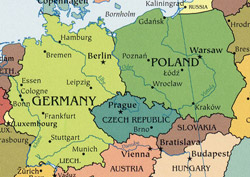

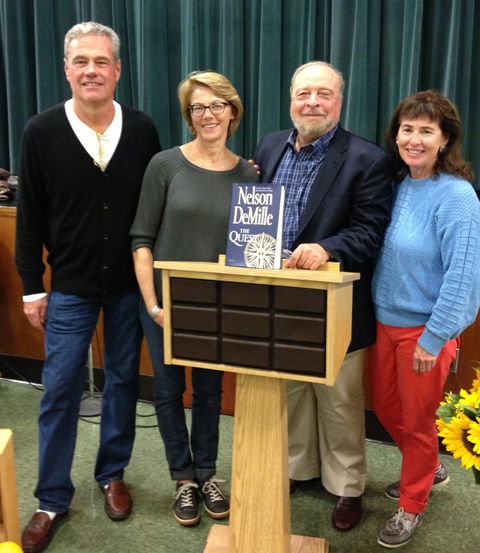
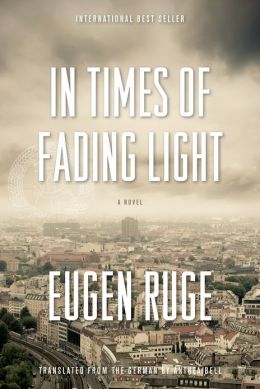 The GBO described In Times of Fading Light, which won the German Book Prize in 2011, as "a fascinating portrait of a family set against the backdrop of the collapse of East German communism. It's the story of the Umnitzer family from 1952 through 2001, told through a series of snapshots. Here are Wilhelm and Charlotte in 1952, returning to newly Soviet Berlin from Mexico. Here is Christmas 1976, as Irina struggles to welcome her son Alexander's new girlfriend into the family. Here is Alexander as a child, visiting his great-grandmother in Russia in 1959; as a young man, weathering his first days of compulsory military service in 1973; and at middle age, reeling from a diagnosis of cancer, traveling through his grandparents' old stomping grounds in Mexico, in the fall of 2001. And, again and again, here are scenes of Wilhelm's monumental ninetieth birthday party, on October 1, 1989, mere weeks before the fall of the Berlin Wall.
The GBO described In Times of Fading Light, which won the German Book Prize in 2011, as "a fascinating portrait of a family set against the backdrop of the collapse of East German communism. It's the story of the Umnitzer family from 1952 through 2001, told through a series of snapshots. Here are Wilhelm and Charlotte in 1952, returning to newly Soviet Berlin from Mexico. Here is Christmas 1976, as Irina struggles to welcome her son Alexander's new girlfriend into the family. Here is Alexander as a child, visiting his great-grandmother in Russia in 1959; as a young man, weathering his first days of compulsory military service in 1973; and at middle age, reeling from a diagnosis of cancer, traveling through his grandparents' old stomping grounds in Mexico, in the fall of 2001. And, again and again, here are scenes of Wilhelm's monumental ninetieth birthday party, on October 1, 1989, mere weeks before the fall of the Berlin Wall.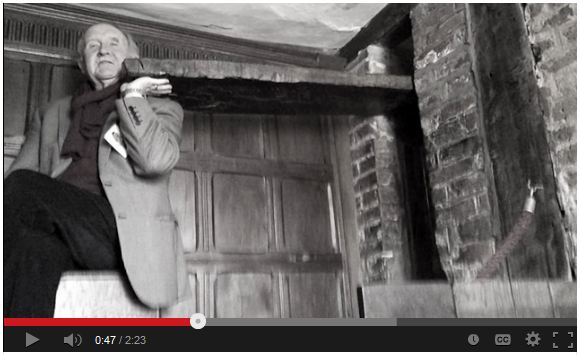 The Paris Architect: A Novel
The Paris Architect: A Novel A "
A "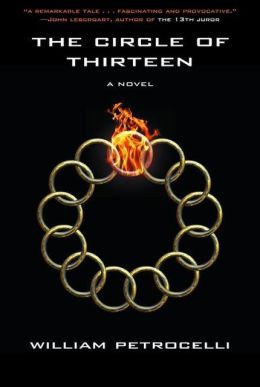 The Circle of Thirteen, the debut novel from William Petrocelli--co-owner of Book Passage, one of the West Coast's best-known independent bookstores--is equal parts mystery, thriller, dystopian fiction and feminist polemic--all of it compelling from first page to last. It opens in 2012 in Dallas, as a little boy crouches in a closet, clutching a medal his father earned fighting the Iraqis and trying to block out the voices in the next room. His father, Jack, is screaming that his mother, Linda, is no good because she is no longer attentive to the Reverend's teaching and is calling her girlfriend a dyke. The fighting ends with gunshots, leaving three people dead. Who is the killer? What are the ramifications of Jack's bullying behavior toward his wife and son? For how many years, and in how many ways, will this violence roil in the boy and then in the man?
The Circle of Thirteen, the debut novel from William Petrocelli--co-owner of Book Passage, one of the West Coast's best-known independent bookstores--is equal parts mystery, thriller, dystopian fiction and feminist polemic--all of it compelling from first page to last. It opens in 2012 in Dallas, as a little boy crouches in a closet, clutching a medal his father earned fighting the Iraqis and trying to block out the voices in the next room. His father, Jack, is screaming that his mother, Linda, is no good because she is no longer attentive to the Reverend's teaching and is calling her girlfriend a dyke. The fighting ends with gunshots, leaving three people dead. Who is the killer? What are the ramifications of Jack's bullying behavior toward his wife and son? For how many years, and in how many ways, will this violence roil in the boy and then in the man?